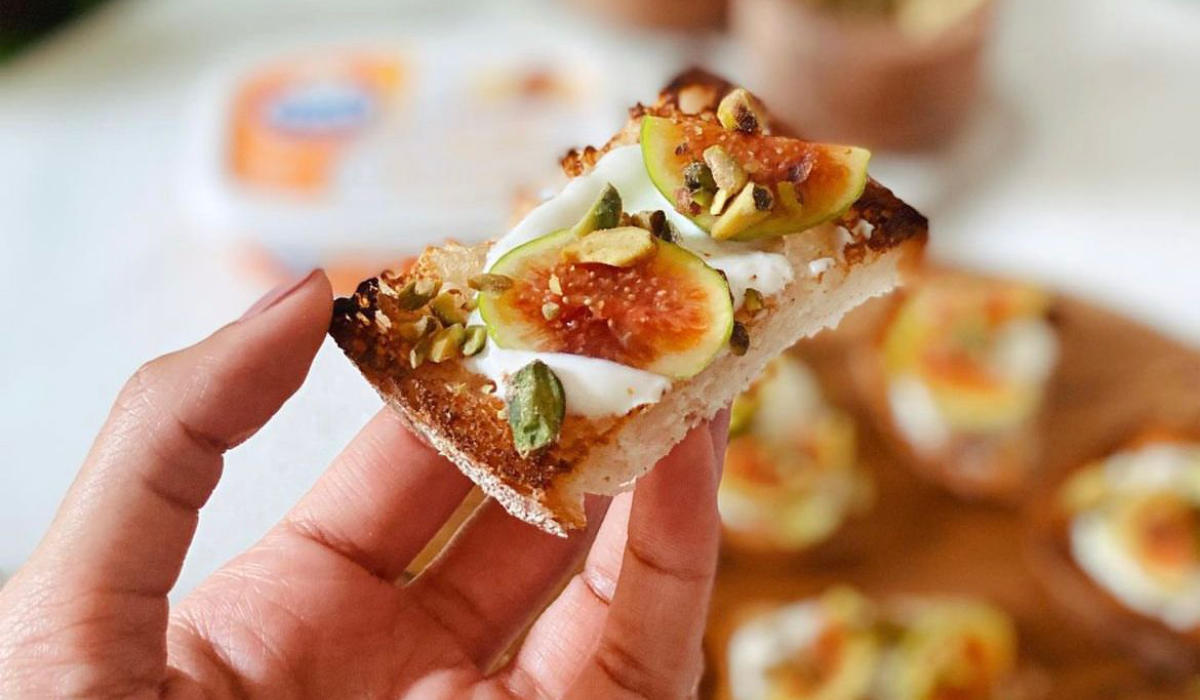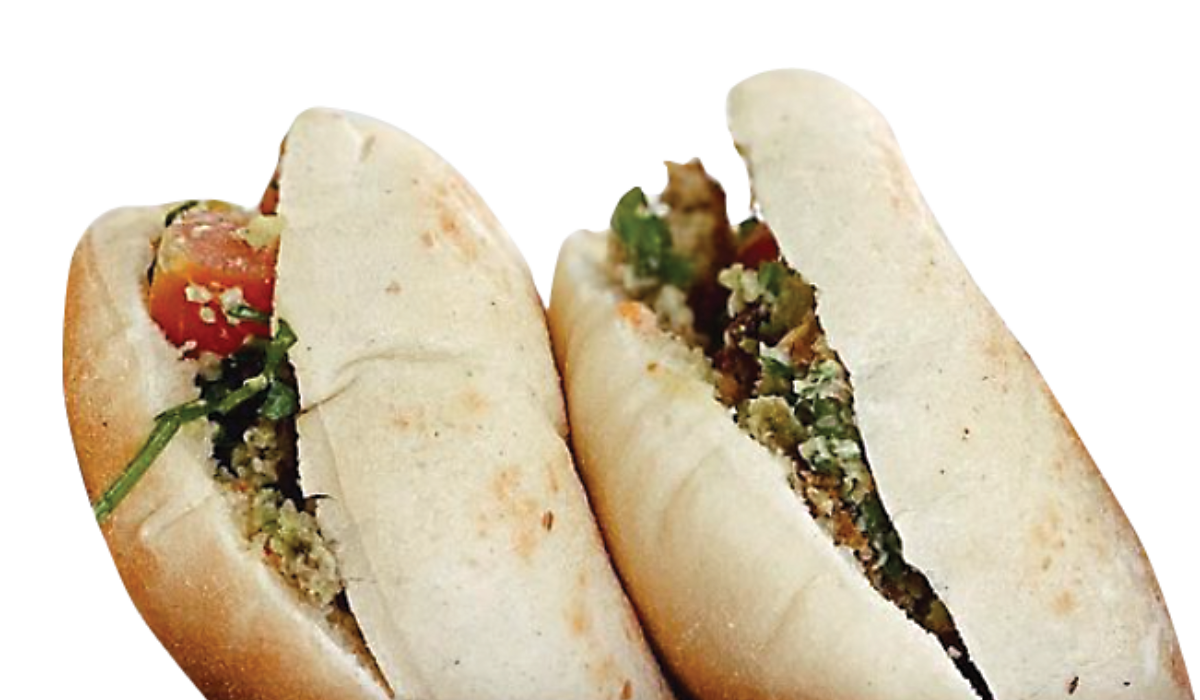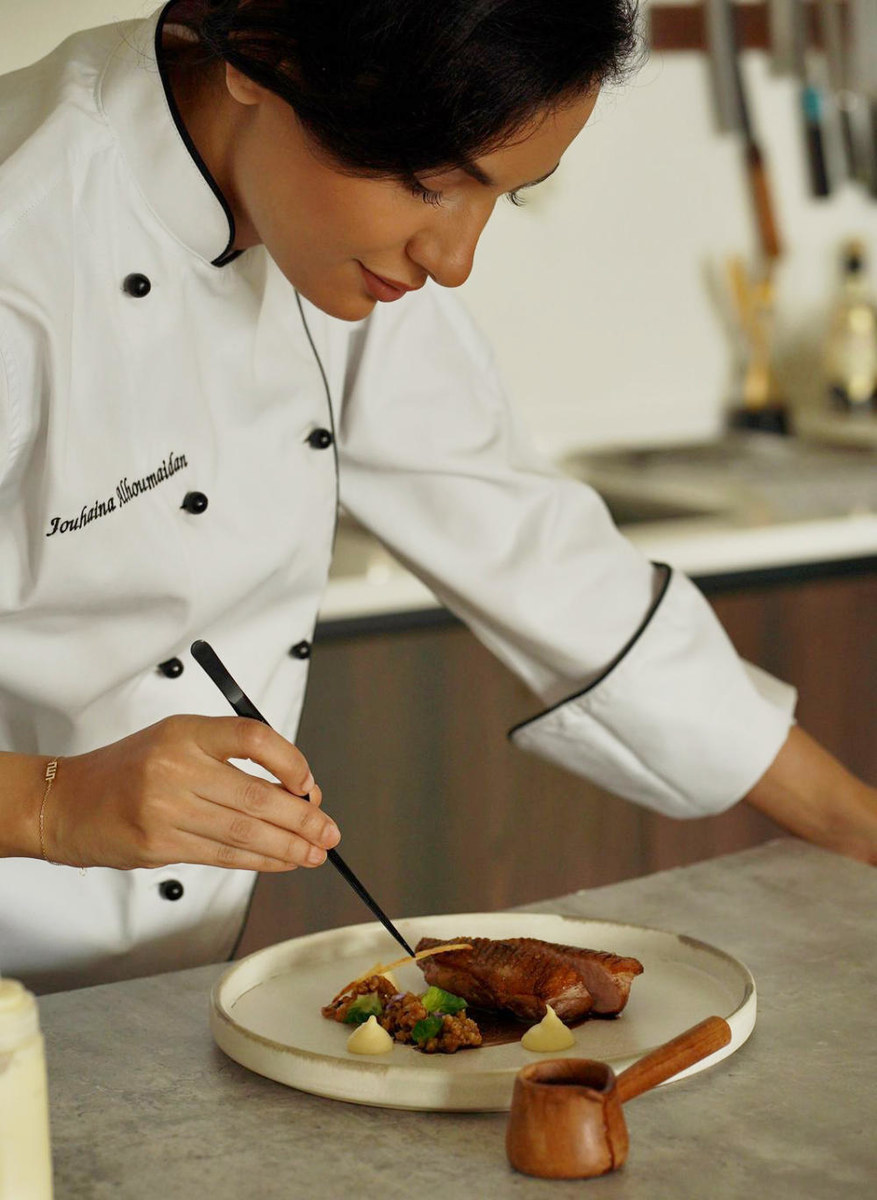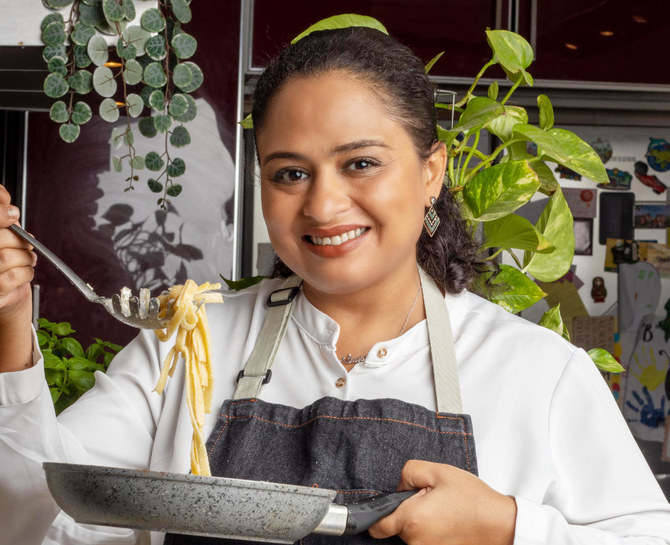RIYADH: Social media platforms are a go-to recipe finder for millions of people around the world, including Saudis looking for iftar and sahoor recipes.
Food bloggers have reported a surge in followers during Ramadan, encouraging them to create innovative, easy to cook recipes.
Alaa Alkhathlan has more than 100,000 subscribers on Instagram at @iberryki and over 600,000 on her YouTube channel at @Berry Kitchen where she spreads her passion for cooking and Saudi food.

Fig snack by Alaa Alkathlan @iberryki on instagram. (Supplied)
She said: “Being committed to the things you love makes you inspired. I enjoy creating delicious recipes and inspiring videos that are easy to follow. Anyone who wants to be a good cook must do it repeatedly until they succeed. Sooner or later, they will.”
Yahya Al-Jaber from Jeddah has racked up more than 27,000 followers on his Instagram account @yahya.aljaber.
He said: “I believe that the field of cooking is a beautiful and creative world in which you can navigate and be creative and different, each in its own way.
Watching one recipe can lead to another recipe idea, or one can find inspiration from a snapshot of the three- minute video clip.
Yahya Al-Jaber, Food blogger
“Watching one recipe can lead to another recipe idea, or one can find inspiration from a snapshot of the three-minute video clip. Inspiration is an important and highly effective factor in improving the quality of performance, development, and excellence.”
Al-Jaber grew up watching cooking programs on TV and then trying them out. At first, the results were not always successful, but through trial and error he found a way. During Ramadan, he creates content that is quick and simple to follow.
Afnan Al-Ghamdi has 2.9 million followers on Instagram at @afnan1993.

Fries with dip by Yahya Al-Jaber @yahya.aljaber on instagram. (Supplied)
One of her followers, Sara Ali, said: “She has the most easy and creative way of cooking. Her recipes are so simple yet unique. Every Ramadan it has turned into a ritual for me to constantly follow her and dig in for some new ideas for cooking.”
Fatimah Ahmed, from Jeddah said: “Most of the food bloggers share the food products they use to make the dishes. It gets so easy for us to follow and motivates us to try our hands at creating those recipes.
“They inspire and get us hooked to their pages especially during Ramadan when we are searching for easy and innovative recipes every day.”

Social media has given the opportunity to explain the recipes in the most methodical and quick way. (Supplied)
Ahmed’s favorite food bloggers to follow in Ramadan on Instagram are Wejdan Mohammad (Wejdan_mohammad_1), Hadeel Bokhari (hadeel.bokhari), and Mohammed Inani (Moe_inani).
Another food blogger, Ahmed Saeed, said: “I learn a lot from other food bloggers and chefs around the world. Social media has given the opportunity to explain the recipes in the most methodical and quick way, in turn making it simpler for understanding.”
He practices his recipes several times before presenting them to his followers.

Chef Jouhainah. (Supplied)
Saudi chef Haifa Alshammari, who is based in Al-Khafji, runs a catering business from home via Instagram at @delicious_kfj. With more than 5,500 followers, she said: “I used to watch cooking videos, then decided to make these dishes myself.”
She noted that social media was a useful tool to promote her business as customers could watch her meal preparations.
One of her most popular dishes is pasta with mushroom and chicken. Here is the recipe: Boil the macaroni. In another pot, add butter and chicken breast (cut into small pieces) and leave it on a low heat for seven to 10 minutes.

A dish by Chef Haifa Alshammari. (Supplied)
Add mushrooms, thinly sliced onions and zucchini, carrots, and bell peppers. Stir over a low heat for 10 minutes. Add sliced black olives, cooking cream, a pinch of black pepper, salt, a little Parmesan, and mozzarella cheese. Then add the boiled pasta.
Hatoon Al-Toukhi is a Saudi chef with 15 years’ experience in Italian cuisine. Married into an Italian family, she learned how to cook authentic Italian food from her mother-in-law.
She runs workshops in Jeddah teaching Italian cuisine using recipes from her Instagram account.
Al-Toukhi said: “I try to offer something unique, having specialized in authentic Italian cuisine.”
She has more than 28,000 followers on Instagram at @hatoonaltoukhi which meant she had to constantly innovate to keep them engaged. “For influencers, Ramadan is our season, a time for innovation of recipes and videos. Through my accounts, I give alternatives to recipes, and I teach recipes that are easy to make.”
On the difference between being a chef on social media or in a restaurant, she said: “It’s different because I choose what I cook on social media. I choose the recipes. And I go authentic.”
For example, she pointed out that the Italian way to make fettuccine alfredo is quite different to the mainstream method. “Italians don’t use cream or add chicken to their pasta,” she explained. Here is her recipe done the Italian way:
For the pasta dough, use two cups of flour, four fresh eggs, and a pinch of salt. Mix the ingredients together and let the dough rest for at least 30 minutes. Roll out the dough and shape it to the size of fettuccine in the pasta machine and sprinkle it with a little flour so that it does not stick together.
To make the sauce, use two tablespoons of butter, one cup of grated Parmesan cheese, two cloves of garlic, and one stick of rosemary. Melt the butter, add the garlic and rosemary, and fry them a little until the rosemary turns brown. Remove it from the butter so as not to burn it.
Boil the water, add salt, pasta, and let it boil for two minutes or until it floats on the surface of the water. Remove the pasta from the water and mix it with the butter, keeping aside the boiling water of the pasta to use in the sauce.
Add some salt to the pasta, half the amount of the Parmigiano, and some boiling water and stir the pasta, then add the rest of the cheese and water again until the consistency of the mixture becomes creamy.
Mom-of-three Jouhaina Alhoumaidan studied cooking in Kuala Lumpur, Malaysia, and is specialized in French cuisine. She is now working at a Michelin-starred restaurant in Malaysia and runs cooking tutorials on Instagram at @jouhainaalhoumaidan.
She started in 2017 by sharing healthy recipes from home. After that, she decided to study cooking to develop her skills. She believes a cook must follow specific rules when working at a restaurant such as delivering dishes for customers at a specific time and manner. “Working at restaurants is challenging.”
Working on social media was more flexible giving chefs the freedom to be creative, she said.
“I received so much support from people when I started. These people helped me gain more confidence through their trust in my skills. I felt the obligation to give back,” she added.
Alhoumaidan pointed out the need for chefs to continuously experiment with new flavors to improve their style of cooking and techniques.





























